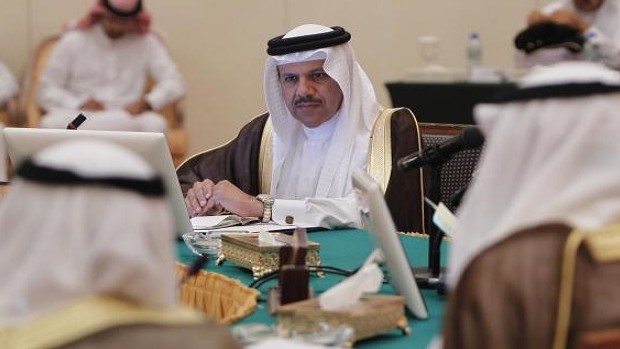
Secretary-general of the Gulf Cooperation Council (GCC) Abdullatif Al-Zayani takes part in the 126th session of the Supreme Council of the GCC Foreign Ministers on June 2, 2013 in the Saudi city of Jeddah. (AFP PHOTO/STR)
Zayani said the identification of Hezbollah’s members will be subject to security procedures which are specific to each member state. He added that GCC members will take political, financial and economic measures against Hezbollah affiliates.
The GCC’s assistant secretary-general for negotiations affairs and strategic dialogue, Abdul-Aziz Al-Uwayshiq, told Asharq Al-Awsat that “according to experience in fighting terrorism, action against such organizations is more effective when it is taken collectively because there are a number of international mechanisms available for that.
“The first step is to monitor the money transfers for Hezbollah and the Syrian regime, and the institutions and individuals who operate as fronts for them. The same applies to parties that are their allies, such as Michel Aoun. It is noted that these groups rarely operate directly under their names or titles.
“The next step is to monitor the investments and money laundering activities. There are also international procedures in place for this. Following the monitoring of direct and indirect financial activities of these groups, it becomes easy to make the right decision.”
The GCC has condemned “Hezbollah’s blatant interference in Syria, which resulted in the deaths of innocent civilians.” It said Hezbollah’s actions revealed the “nature” of the movement and its “real intentions” in the region.
The GCC director of international relations, Mishary Al-Naim, said: “The GCC has not yet classified Hassan Nasrallah as a terrorist, but this could happen soon, after clearing up some legal issues.”
Meanwhile, Lebanese caretaker foreign affairs minister Adnan Mansour has criticized the GCC’s decision, describing it as “political.” He told Lebanese LBCI TV that Lebanese citizens did not interfere in the politics of the countries where they worked.
